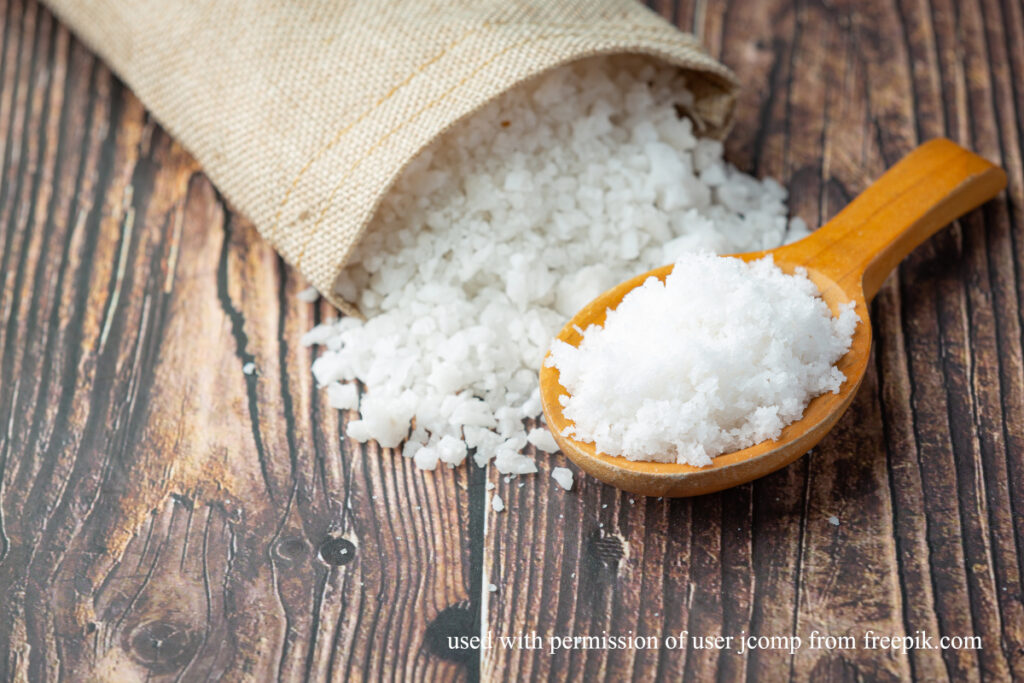
Salt of the Earth
“You are the salt of the earth, but if salt has lost its taste, how shall its saltiness be restored? It is no longer good for anything except to be thrown out and trampled under people’s feet.”
Matthew 5:13
Dr. D. A. Carson, research professor of New Testament at Trinity Evangelical Divinity School has some helpful reminders in his book, Exegetical Fallacies.[1] He points out some errors that people make in interpreting passages in the New Testament such as this one. One mistake is taking a word like “salt” and finding every usage of the word in the entire Bible and reading it into the meaning that Jesus has here. A similar mistake is to take the full semantic range of the word and assume that that entire range of meaning is encapsulated in every usage. Just like in English, the specific context often limits the range of meaning of the word and authors can use the same word in different ways without confusion or needing to read everything into that word. It is a technical book but even without knowledge of the original languages, you can follow what his main points are.
This is helpful here because in the Old Testament there was a “covenant of salt”, and Lot’s wife was turned into a pillar of salt. Salt was added to grain offerings, burnt offerings, and mixed into the incense as well. In addition, Elisha threw salt into the spring of bad water and the water was healed. (2 Kings 2:20-22)” In Psalm 107:34 salt on the land made it desolate and worthless. In addition to that salt was used for trade and there are some indicators that salt was used as payment to the Roman soldiers.[2] Now, when Jesus said that we are the “salt of the earth,” for that is where salt is mined, did he have all these ideas in mind?
This is why context is so important and limits our understanding of what the passage is teaching. Both by what Jesus says here and what he will say in the next three verses reveal that he is using salt in a positive sense. Salt had two main purposes in Jesus’ day, to flavor foods and as a preservative rubbed into meat to help it from becoming rotten. It seems that both ideas fit here as one would taste the salt to know if it still had its saltiness. Carson notes, “Strictly speaking, salt cannot lose its saltiness; sodium chloride is a stable compound. But most salt in the ancient world derived from salt marshes or the like rather than by evaporation of salt water, and therefore contained many impurities. The actual salt, being more soluble than the impurities, could be leached out, leaving a residue so diluted it was of little worth.”[3] This worthless “salt” would be thrown on soil to harden and prevent leaks on a path.
The culture around us is in decay. One of God’s purposes for the church is to be a preservative by slowing the rot by “penetrating society for good and act as a kind of moral antiseptic. And they give a tang to life like salt to a dish of food.”[4] The only way that we can do that is to be out in the world, rubbing our shoulders with non-believers and becoming an influential part of their lives. We should not be surprised that, left to itself, the world is going to continue its downward slide into immorality. It is our proclaiming then living out the gospel that is the decisive influence in impacting the world around us. We must also be willing to clearly and articulately defend biblical truth whenever it is contradicted or called into question. We will discuss this more next time when we look at verses 14-16.
[1] D.A. Carson. Exegetical Fallacies, 2nd ed. Grand Rapids, MI: Baker, 1996.
[2] https://www.npr.org/sections/13.7/2014/11/08/362478685/from-salt-to-salary-linguists-take-a-page-from-science (accessed 4/24/2023)
[3] D.A. Carson, Matthew – Expositor’s Bible Commentary, Rev. ed. Grand Rapids, MI: Zondervan, 2010.
[4] Leon Morris. Pillar New Testament Commentary: Matthew, Grand Rapids: MI: Zondervan, 1992.
